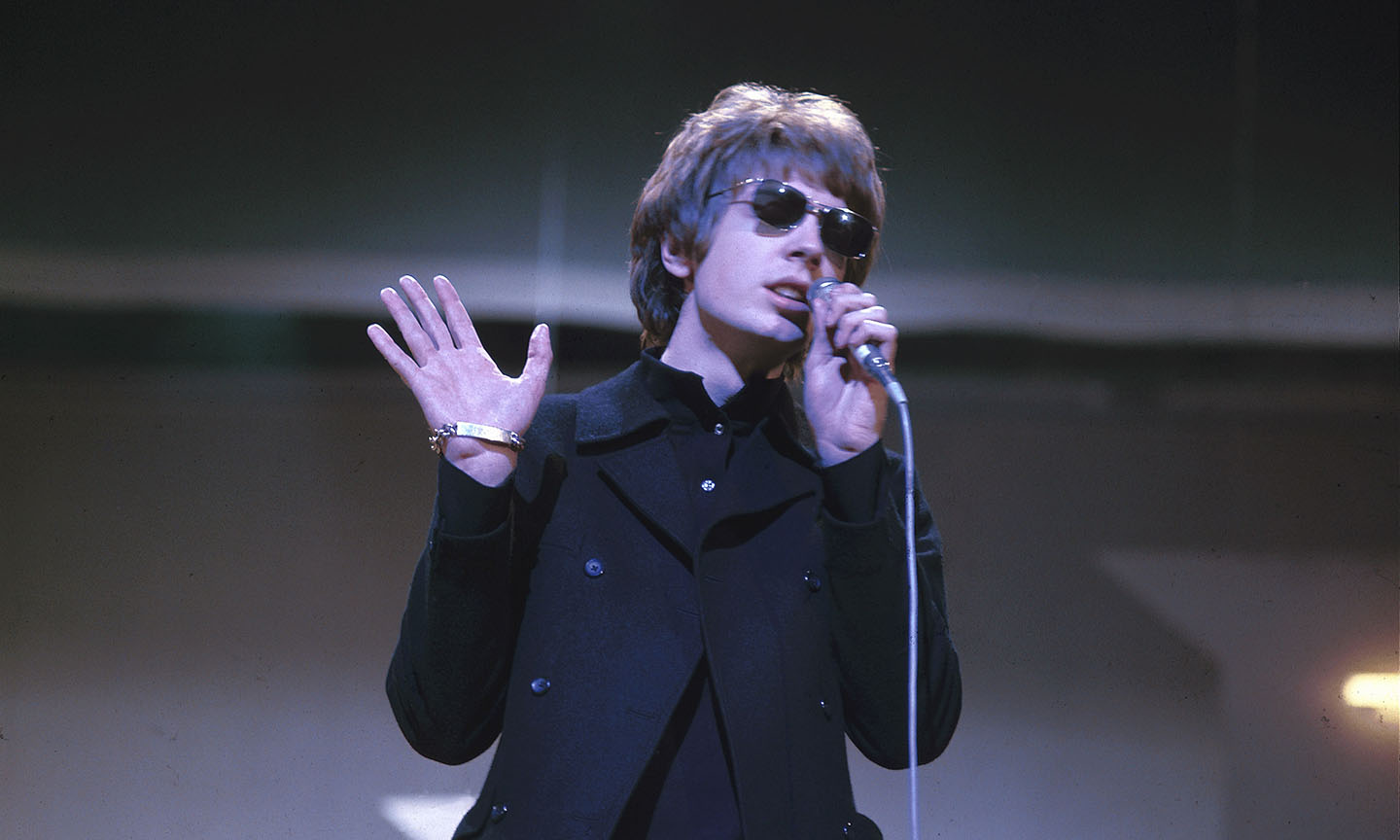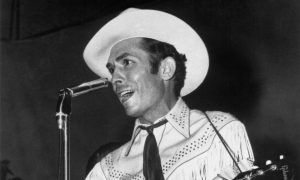When Scott Walker released his first solo album in late 1967 he had not officially left the Walker Brothers. Mentally, however, he was well on his way. The Brothers’ album Images, released earlier in 1967, certainly offered a hint of what Scott’s debut album could sound like. Born Scott Engel, on January 9, 1943, he contributed three songs to Images, and the towering “Orpheus” is the best pointer as to what his own solo album was to be like. In both the other Scott compositions, you can hear that he had been listening to singer Jacques Brel; “Experience” has an unusual time signature for a pop song, while “Genevieve” is a lyrical homage to the Belgian composer.
Any one of the three Engel compositions from Images could have been included on Scott, which was released in September 1967. Such was Walker’s popularity with fans of the group that it made No.3 on the UK album charts, but its sales were also helped by the sheer quality of the material.
The opening song on Scott is a cover of Brel’s “Mathilde,” and it’s as good a first track as you could wish for. The album’s closer is the monumental “Amsterdam,” another Brel classic and sandwiched between these songs are ten numbers that range from astute covers like Tim Hardin’s “The Lady Came From Baltimore” and “The Big Hurt,” originally a US hit for Toni Fisher, to unusual choices like Andre and Dory Previn’s “You’re Gonna Hear From Me.”
But it is the three Scott Engel compositions that are arguably the outstanding moments. The lush, “Montague Terrace (In Blue),” the atmospheric “Such A Small Love” – that is given the most amazing arrangement – and the intimate, “Always Coming Back To You”; it’s another homage to Brel, but one with such romanticism that it is pure Engel. As a whole, Scott remains one of the most original and affecting albums from the 1960s. The question that many were asking in 1968 was could he follow it?
By March 1968, it was clear that he could, because out came Scott 2, and yet again, it opens with another classic Walker interpretation of a Brel song, “Jackie.” Like his first solo album, there are two more Brel songs, with two powerful lyrical translations by Mort Shuman. There are again interesting covers, including another Tim Hardin song, “Black Sheep Boy” and Bacharach and David’s “Windows Of The World” (arguably the best-ever version of this superb song).
The four Scott Engel songs included on Scott 2 are, “The Amorous Humphrey Plugg” that is typical of his writing style, combining time changes with interesting lyrical ideas. “The Girls From The Street’ is his Brel-esque number on this album, while “The Bridge” goes back to the style of writing characterised by, “Such A Small Love.” Last, and certainly not the least, is the gorgeous, “Plastic Palace People,” it’s another with clever tempo changes and a beautiful string arrangement. Scott 2 sold even better than his debut and made No.1 on the UK album charts.
It would be another year until the release of Scott 3 and it was worth the wait. Some have suggested that this is not as strong as the first two albums, but they are missing the point. This is much more a Scott Walker solo album, with 10 self-written songs and the other three being from the pen of Brel. Rather than going for the impact opening of his first two albums, Scott 3 opens with shimmering quiet strings that simulate the feeling of a cloudy, dark early morning on “It’s Raining Today.”
It is a beautiful song that gives way to the equally lovely “Copenhagen,” possibly Engel’s most romantic song. Of the other Engel compositions, the standouts are the evocative “Big Louise” and the sumptuous “Two Weeks Since You’ve Gone,” which has Walker in his finest “lost boy” vocal interpretation. The three Brel songs are “Sons Of,” “Funeral Tango” and the well-known “If You Go Away.” Putting all three together at the end of the album was smart. They work much better as a trilogy than the Brel songs on the earlier albums. Walker’s reading of “If You Go Away” is definitive, and when he soars on the vocal refrain, “But if you stay, I’ll make you a day,” he nails it like no one else.
Scott 4 came along in November 1969 and is the first true solo album, as all ten songs are written by Engel; it was also released under the name Noel Scott Engel and its failure to chart is partly blamed on this decision – one that was entirely Walker’s own. As a body of work, it is outstanding, and many consider this to be his greatest album. It’s hard to argue.
From the evocative opening of The “Seventh Seal,” the musical journey is full of maturity, both in the writing and the performing. Standout tracks include “On Your Own Again,” “The World’s Strongest Man,” “Boy Child,” and “The Old Man’s Back Again (Dedicated to the Neo-Stalinist Regime).” On the sleeve notes, Engel quotes Albert Camus, “a man’s work is nothing but this slow trek to rediscover, through the detours of art, those two or three great and simple images in whose presence his heart first opened.” And that is the simple truth of this remarkable album.
If people were anticipating Scott 5, they were to be disappointed because in December 1970, Engel released ’Til The Band Comes In; it was a very different kind of album, a record of two very distinct halves. The first ten tracks are Scott’s compositions, and while some have been harsh about the quality of the songwriting, there are some really good songs on it, including the Brel-esque, “Little Things (That Keep Us Together)” and the album’s title track. But head and shoulders above everything is the gorgeous “The War Is Over (Sleepers – Epilogue).”
Arguably these five albums are the most prolific and sustained body of work from any singer, ever. Scott’s reputation as one of the great vocalists rests on these records, yet he himself has turned his back on these recordings, preferring to take a very different musical path, having got a brief Walker Brothers’ reunion or two out of the way.
Fire escape in the sky? It is a line from Scott’s song, “Big Louise,” on Scott 3. It was also the title of a compilation put together in 1981 by Julian Cope at a time when Walker was at a low standing, both critically and commercially. The compilation was subtitled The Godlike Genius Of Scott Walker. You’ll hear no argument for that notion. These records really should be in everyone’s collection.




